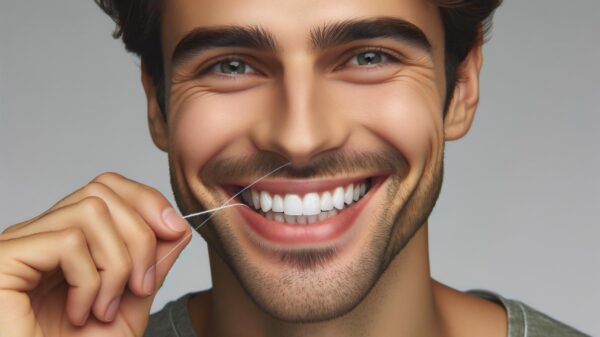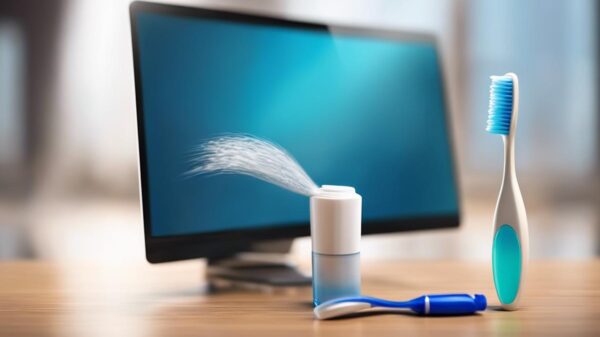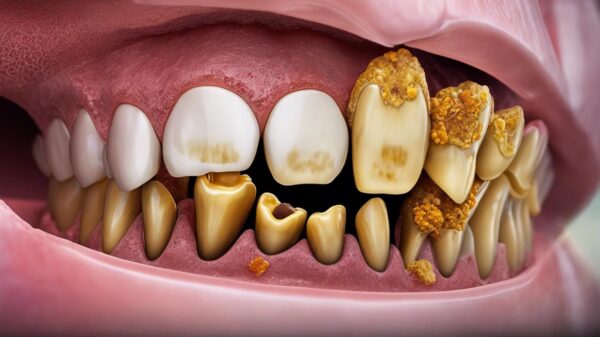How to Brush Wisdom Teeth Correctly
Did you know while there are many people who have their wisdom teeth removed before the wisdom teeth even come to the surface of their gums, there are some people who live their whole lives with wisdom teeth and don’t suffer from any ill effect?
Wisdom teeth can still get cavities and experience tooth decay just as any other tooth would, but it can be more difficult to brush and floss them due to their location in your mouth.
So, how do you brush wisdom teeth correctly? To brush your wisdom teeth correctly, use a smaller toothbrush that can reach your wisdom teeth. As you brush your wisdom teeth, be sure to brush the gum line both in front of and behind the tooth to remove any impacted food debris that is susceptible to this area of the mouth.
In addition to brushing, Using mouthwash and flossing regularly should also be included in your routine to keep your wisdom teeth healthy and clean.
For those who never get their wisdom teeth removed, it’s important to know that these teeth or more susceptible to tooth decay and gum disease. Their location in the mouth can make it difficult for them to receive proper care, even when the rest of the mouth is kept healthy. To learn more about wisdom teeth, keep reading!
Tips for Brushing and Maintaining Your Wisdom Teeth
Brush With a Smaller Tooth Brush to Reach Your Wisdom Teeth
One reason it is so hard to take care of wisdom teeth is because of where they sit in your mouth. Wisdom teeth sit so far back in your mouth that it can be difficult to brush them with a toothbrush. If you feel as if you are inadequately brushing and reaching your wisdom teeth, one thing you can try is using a smaller toothbrush.
In the back of your mouth, your jaws come closer together, making it difficult for a big toothbrush to reach your back teeth. One thing you can try when it comes to brushing your wisdom teeth is using a smaller toothbrush or an electric toothbrush that can reach farther back in your mouth.
Try also making an “o” shape with your mouth rather than just opening wide as you brush your teeth. By doing this, your cheeks will be more elastic, which will allow for a toothbrush to reach back to the molars.
You should brush your teeth at least twice a day for two minutes at a time to thoroughly remove plaque and bacteria from your mouth. Believe it or not, but brushing is one of the most effective ways to maintain the health of your teeth.
If you’re looking for an electric toothbrush, check out our article Our 10 Favorite Electric Toothbrushes with Timers of 2020.
Use Mouthwash to Kill Bacteria On Your Wisdom Teeth
Dentists recommend using mouthwash to help keep your wisdom teeth clean. The back of the mouth is the breeding ground for bacteria, making your molars susceptible to tooth decay. Mouthwash works to kill bacteria in your mouth, which can go a long way when it comes to keeping your wisdom teeth, and the rest of your teeth, healthy and clean.
Use a Flossing Tool to Floss Around Your Wisdom Teeth
Much like when it comes to using a toothbrush, it can be difficult to floss around your wisdom teeth due to their location in your mouth. If you use a flossing string, you would have to fit your whole hand in your mouth to be able to floss around your wisdom teeth!
Food particles and plaque can easily get stuck around your wisdom teeth and other molars; because of this, it’s important to floss these teeth regularly. You should use a flossing tool to floss around your wisdom teeth.
A flossing tooth extends into the mouth in order to floss the teeth that are hard to reach. A piece of floss is strung between the sides of the tool, so you now only need one hand to floss!
To learn more about flossing, read our article How Often Do You Need to Floss?
Understanding Wisdom Teeth

A wisdom tooth is a name given to the 3rd set of molars that a person has in their mouth. These teeth will sit the furthest back in your mouth, and there will be four wisdom teeth in your mouth overall.
A set of wisdom teeth erupts on your top jaw and another set of teeth on your bottom jaw. People who have their wisdom teeth removed will only have 28 teeth, while those who keep their wisdom teeth will have 32 teeth.
Wisdom teeth will be the last of your teeth to erupt; many people get their wisdom teeth between their late teens or even into their twenties. Many people get their wisdom teeth removed as teenagers before the teeth even erupt from the gums.
Did you know that having your wisdom teeth doesn’t necessarily make you wiser? According to WebMD, The reason these teeth have been deemed “wisdom teeth” is due to the fact that they don’t come in until you are older.
Wisdom teeth will be the last of your teeth to erupt; many people get their wisdom teeth between their late teens or even into their twenties. Many people get their wisdom teeth removed as teenagers before the teeth even erupt from the gums.
Why Do We Have Wisdom Teeth?
Wisdom teeth are classified as molars. A molar is a tooth set in the back of the mouth used to grind and chew up food. (see complete definition here) Human molars are similar to mammals that live off of a vegetarian diet, like horses and cows. These molars are more flatter in order to properly chew up vegetation.
Scientists believe that we have wisdom teeth since, in the past, humans ate more of a plant-based diet that included raw plants, nuts, bark, and roots.
Today, meat is a big part of the average person’s diet. Most people also cook their food now, resulting in foods that are easier to chew and digest. Due to the change in diet and eating behaviors, some human mouths have developed so that their wisdom teeth are no longer needed.
How to Know Whether or Not You Need Your Wisdom Teeth Removed
Each year, millions of people have their wisdom teeth removed. While some experts will say that many of these removals weren’t necessary, the general public has been taught to get their wisdom teeth removed before the teeth can even come in. So, how do you know whether or not you need your wisdom teeth removed?
Whether or not you need your wisdom teeth removed depends on the size of your mouth. No matter your mouth size, the majority of people have 28 teeth before their wisdom teeth come in. If someone has a smaller jaw, 28 teeth may be the only teeth that can fit in this person’s mouth. If the wisdom teeth were to erupt and start growing, they could cause overcrowding or even cause other permanent teeth to shift.
If you have a larger jaw and room in your mouth, your wisdom teeth may be able to come in and never cause you a problem. The best thing to do to determine whether you need your wisdom teeth out or not is to visit your dentist. They will be able to look at the size of your mouth and the existing crowding of your teeth to determine if wisdom teeth would negatively affect you or not.
Susceptibilities of Wisdom Teeth
If you decide to let your wisdom teeth grow in, you should be aware that these teeth are more susceptible to tooth decay and gum disease due to where they sit in your mouth. Since wisdom teeth sit so far back in the mouth, it can be difficult to effectively brush or floss these teeth. It’s a good idea to check with your dentist to see whether or not your wisdom teeth should come out.
The back of the mouth is also where food particles can impact and get lodged between the teeth. Plaque and bacteria can take root on the back of the teeth and in the gums. Since the molars sit in a place in your mouth where they can’t be seen, many people overlook their care; however, these teeth are more likely to get cavities and need restorative repair.
I hope this article answered all your questions about caring for your wisdom teeth. Brushing your wisdom teeth correctly is one of the best ways to care for the extra set of teeth you have in your mouth. You may be wondering, can I brush my teeth to often? To learn more, check out our article, Can I Brush My Teeth Too Much? The Answer Will Surprise You.












